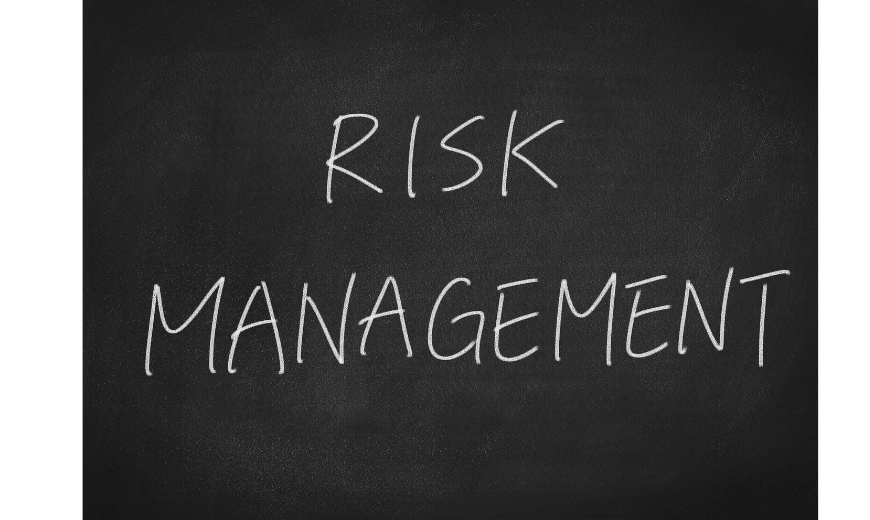A business, whether large or small, must overcome obstacles and difficulties. Thus, the company has risk management in place to oversee all of its activities. To be able to reduce risk, companies usually use Facility Management Software for ease of management.
All business activities must be capable of mitigating or preventing the occurrence of risks. Thus, each action is taken with great care, ensuring that the decisions made by business actors are appropriate and prevent the company from collapsing.
Having a firm grasp on risk management enables you to run your business with due regard for potential gains and losses.
Thus, what is risk management, what are the objectives, what are the benefits, and what are the various types? Additional information is provided below.
Table of Content:
Table of Content
What is Risk Management?
Risk management is the process of identifying, analyzing, evaluating, controlling, and attempting to mitigate or eliminate as many risks as possible for business owners. Businesses use it to avert potential losses that would be detrimental to their operations.
The techniques safeguard a business against unforeseen problems that could result in collapse, significant losses, going out of business, or clients withdrawing, among other things.
Risk control enables businesses to navigate a world of possibilities and uncertainties in today’s fast-paced business environment. No organization or business can avoid the dynamics and problems inherent in business.
Also Read: How to Increase Online Sales Turnover during the COVID-19 Pandemic
No business is completely risk-free. Thus, entrepreneurs, whether technical or not, must be prepared for new challenges and dynamics. Risk control safeguards business owners against a variety of issues.
Benefits of Risk Management
After previously, we explained the function of this risk management to prevent some risks such as losses. These are some of the benefits of risk control in the company, among others:
Increase productivity and profits
Productivity is a production activity that has become a measure for managing resources and maximizing their effectiveness.
Through controlling into business, you can become more careful in running a business and avoid falling into the same trap.
As a result, it will automatically help you increase productivity, and your profits will increase compared to before business risk management.
Ease cost estimation
Cost estimation is the calculation of the cost needs required to complete an activity or work. For businesses, cost estimation is very important because it allows companies to compare expense estimates with revenue.
Inaccuracies in cost estimation can harm the parties involved and interfere with the production process, such as hampering the company’s production process.
Risk analysis and management will make it easier to calculate the estimated costs your company will need, such as estimated production costs for your company.
As a business decision tool and evaluation material
Evaluation is the process of assessing and measuring the effectiveness of strategies against activities that the company did previously to achieve the goals.
The results of a business risk analysis will be useful in determining whether the methods used so far are the best and most appropriate methods for achieving business goals. Or, if it turns out that your decision isn’t good enough, you don’t make the same mistakes again that can hinder your company’s progress toward its goals.
With an evaluation, you will find it easier to make a more appropriate business decision.

Objectives of Risk Management in Business
Risk management serves several critical purposes, including assisting a business in surviving and achieving its vision and mission. The company has at least four objectives. Please refer to the explanations provided below.
Protecting the business
Risk management is a concept that assists businesses in defending against threats that can occur at any time. Whether the issues are large or small, sound management will keep the impact of losses to a minimum. Additionally, businesses can establish tolerance limits for the effect that occurs.
You want your business to run smoothly and to grow. Kindly initiate risk control in this area. For example, if your business is threatened by the Covid-19 Pandemic, effective risk control during pandemics will help you avoid incurring additional losses.
Assist with framework development
Risk management can significantly aid business owners in developing the framework for their organization. Business owners use this management style as a model for developing an effective and efficient work system.
For instance, risk control requires business owners to design Standard Operating Procedures (SOPs) in such a way that financial losses are avoided.
Also Read: Importance of DuPont Analysis for Corporate Financial Management
Improve business performance
It helps improve a company’s performance by providing information on the level of risk mentioned in the risk matrix. It is also useful in the development of strategies and continuous improvement of risk control processes.
Businesses that use risk control build sustainable control systems, making it very easy for management to identify problems on the ground on an ongoing basis.
Risk information encourages responsible parties to evaluate and make continuous improvements. These conditions will promote the company’s performance to be more effective and efficient. Indirectly, the competitiveness of the company will also be stronger.
Alertness to risk
Risk management can also serve as a reminder to all facets of a business to exercise caution when performing tasks. This caution mitigates the risk of work process errors, which can cost time, energy, or money.
Types of Risk Management
The application of risk control in the business world varies depending on the company’s needs. Risk management classifications are classified into four categories based on their nature, including the following:
Management of financial risks
Risk management in finance is a subset of financial management. The objective of financial risk control is to avert the collapse of all forms of corporate finance, including assets.
Financial risk control will protect the company’s entire asset base. The objective is to maintain a healthy financial position that will enable future business development. For financial risk management, you can use automated Accounting Software that simplifies the process of monitoring overall business finances.
Management of operational risks
Management appears as a preventative measure for work process errors in this type of operational risk control. Typically, this proactive management is accompanied by sanctions designed to mitigate four risk factors that occur during the work process: processes, systems, humans, and external events.
Risks in the operational form include human error, machine failure, network system failure, force majeure, and mass action.
Management of strategic risks
Strategic risk management aims to avert the emergence of risks that could jeopardize the business’s or management’s ability to execute planned strategies. Numerous variables are at play in this instance, including operational risk, asset impairment risk, competitive threat, and even franchise risk (if any).
Also Read: Things That Can Support the Success of Your Franchise Business
Hazard
Hazard management is part of management that focuses on potential business end issues. Usually, business problems of hazard type can potentially cause business losses and damage.
Hazard management places a focus on three factors: legal implications, physical damage, and moral decline. If a potential danger exists from all three aspects, it is very good to quickly manage and anticipate the company.
Conclusion
Applying risk management to your business is important for the sustainability of your business. In addition to preventing your business from collapsing, managing risks to the company can provide several other benefits, such as increasing productivity while encouraging business performance.
Companies usually make mistakes in implementing their management activities. Common mistakes that many companies make include having a less reliable leader, simply ‘trusting’ quantitative data, to technical errors such as not integrating risk management with data in real-time.
Using HashMicro’s ERP Software can help you integrate data automatically and accurately into all business activities. Thus, both strategy planning, risk control, and business performance are accurately connected.
Switch to HashMicro like hundreds of other major companies. We have been part of business solutions for TransCorp, Ichiban Sushi, UOB, Standard, and others. Try a free demo now.

Also Read: 5 Common Risk Mitigation Failures and How to Solve It






















































